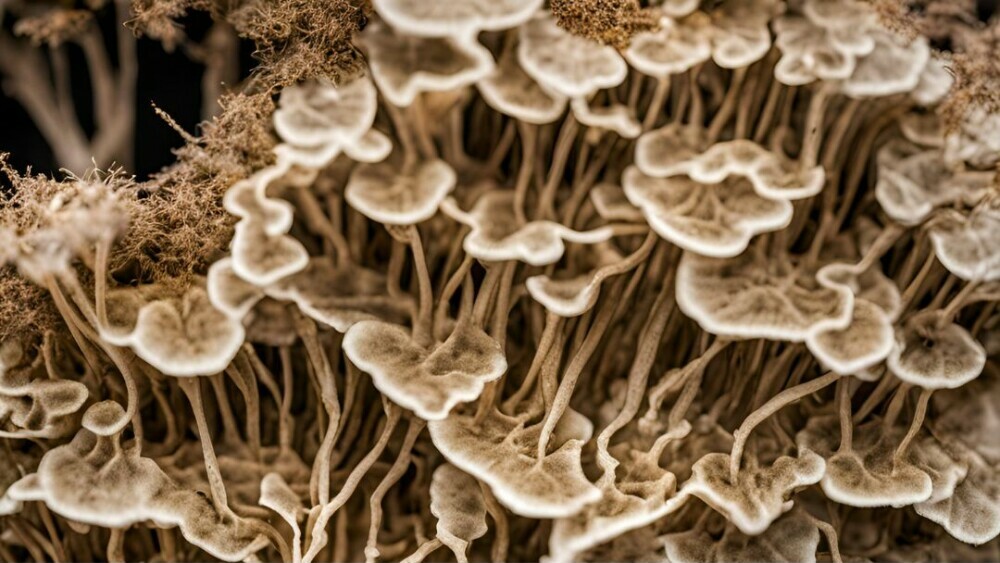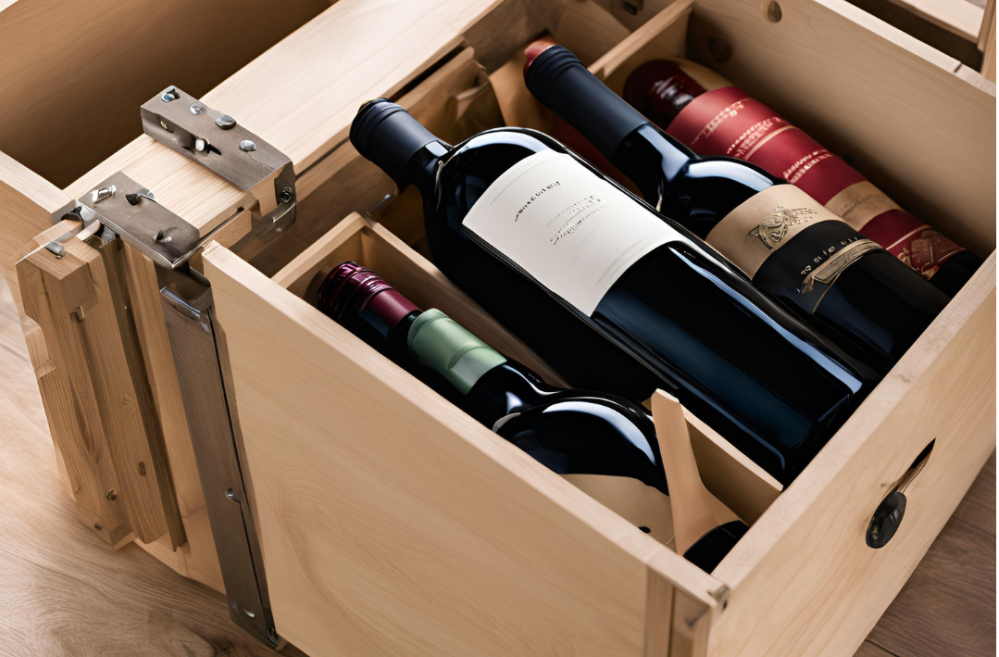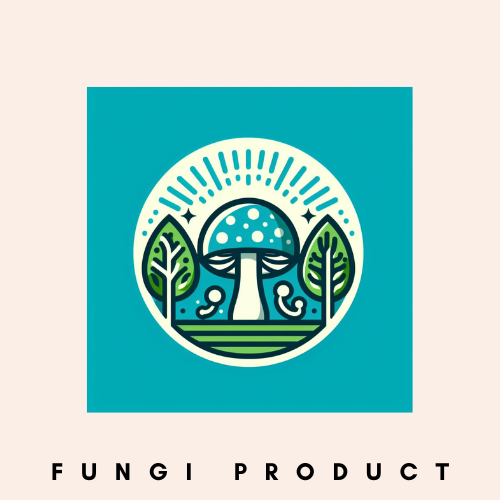Fungi is a vital pursuit across all sectors. Traditional industries leave hefty carbon footprints, straining our planet’s resources and biodiversity.
In this post we will enter the realm of mycology, the study of fungi, which is pioneering radical, eco-friendly solutions. Diving into this underexplored kingdom of nature, fungi-based startups are at the forefront of sustainability, offering smart alternatives to conventional materials.
What’s remarkable about fungi is their versatility. These organisms thrive in diverse environments and they possess properties that innovators are harnessing to revolutionize everything from fashion to construction. In this context, fungi stand out as a game-changer for eco-friendly manufacturing and product development. They can be rapidly grown, are biodegradable, and significantly reduce waste and energy consumption.
Fuelled by creativity and ecological concern, these startups are carving a niche in sustainability.
I like to introduce you to five such enterprises that illustrate the untapped potential of fungi. Their journeys are transforming their industries and setting the stage for a broader green revolution. It is a discreet first acquaintanceship and I hope to get the opportunity to familiarize with these ground-breaking companies harnessing the power of fungi to pave the way for a more sustainable future.
MycoWorks: Crafting the Future of Sustainable Fashion
Let’s have a peek into how MycoWorks is redefining the leather industry. The traditional process of tanning leather has a heavy environmental footprint, from high water usage to toxic chemical runoff. Here’s where MycoWorks steps in with a game-changing solution called Reishi™ – their signature fungi-based leather alternative.
I found details about the MycoWorks company and their operations. MycoWorks is a biotechnology company based in Emeryville, California. They specialize in creating high-quality materials using their proprietary Fine Mycelium™ technology. This technology allows them to produce premium, non-animal materials, particularly targeting industries such as fashion, footwear, automotive, and home decor. MycoWork is a leader in the leather.
Their flagship product, Reishi™, is a sustainable alternative to leather. Reishi™ is known for its strength, durability, and luxurious feel, comparable to the finest animal leathers but with a lower environmental impact. It is produced in California and finished in Europe using chrome-free tanning and dyeing processes.
Their Reishi™ material comes from mycelium, mushroom roots, grown in controlled environments. This method uses less water and land and repurposes agricultural waste, sparking a sustainability revolution in fashion.
Reishi™ is produced in MycoWorks’ facility in Union, South Carolina, USA, and then sent to these European tanneries for the final finishing processes – FashionUnited. The entire process is designed to ensure that the material retains the durability, strength, and aesthetic qualities of traditional leather, while significantly reducing the environmental impact.
The European company that finishes the leather for MycoWorks is not specified by name in available sources.
Additionally, MycoWorks has collaborated with notable brands like Hermès, where they developed a new material called Sylvania for the Hermès Victoria bag, showcasing the potential of their mycelium-based materials in luxury goods.
Choose something that resonates with you. If environmental ethics are your jam, you’ll love the cruelty-free aspect of Reishi™. Unlike traditional leather, which relies on animal hides, Reishi™ is grown without harm to any living creature, making it a top-tier sustainable and ethical choice for fashion.
There’s a lot of opportunity in switching from conventional to fungi-based leathers, and MycoWorks is harvesting that potential. The material is versatile, readily accepting dyes and finishes, which in turn caters to designers seeking both sustainability and style.
Pretty wild, right? That’s the strategy I like to leverage when I think about the impact of such innovations. Not only does Reishi™ reduce the reliance on cattle farming, but it also mitigates the associated greenhouse gas emissions. It means cutting-edge fashion optimizing a healthier planet.

Ecovative Design: Constructing a Greener Tomorrow
Ecovative Design LLC is a materials company headquartered in Green Island, New York, that provides sustainable alternatives to FashionUnited and polystyrene foams for packaging, building materials and other applications by using mushroom technology.
The problem with the construction and packaging industries today is that mostly they work with materials that are anything but kind to our planet. Polystyrene foam, for example, is notoriously hard to recycle, ending up in landfills or as litter – a real environmental headache.
Here Ecovative Design comes into play, trying to fix this and flipping the script with their fungi-fueled innovation.
The big idea that Ecovative comes up with is using mycelium as a raw material – the same root-like structure of mushrooms that you might find in your wooded backyard. By harnessing this natural material, Ecovative crafts sustainable alternatives to products like plastic insulation and Styrofoam packaging. They grow their materials using mycelium and agricultural byproducts, resulting in lightweight, cost-effective solutions.
Thus these building and packaging materials become biodegradable, harnessing the innate ability of mycelium to break down in the environment once they’ve served their purpose. This means when an Ecovative product is no longer needed, it can simply be composted – returning to the earth without a trace of pollution.
Consider the potential reduction in our carbon footprint if industries massively adopted such an approach. The implications for sustainability are huge – from the way we insulate our homes to how we ship products across the globe. And with Ecovative’s growing partnerships and business avenues, and next to an ecological win it’s shaping up to be a commercial success story too.
This brings us to another innovative venture in the world of fungi-based startups.
Up next is Mycoworks, but not the one we already talked about. This different company bearing a similar name is making noise for all the right reasons, quite literally. They’ve tuned their focus to a field where traditional materials have long been the norm: sound insulation.
Mycoworks: Tuning Into Eco-Conscious Acoustics
Have you ever wondered if better soundproofing could possibly help the environment?
Well, Mycoworks PBC in New York, a different entity from the MycoWorks we discussed earlier, is answering that question with a resounding ‘yes’. This startup has taken the acoustic world by storm by producing sound insulation panels made from, you guessed it, mycelium.
It’s not just the noise reduction capabilities that make these panels stand out, more over it is their environmental credentials.
Traditional acoustic materials like fiberglass have been go-tos for their sound-dampening properties. However, they come with a not-so-silent issue: they’re tough on the planet.
That’s where Mycoworks steps in. Their panels are a harmony of sustainability and functionality, providing a biodegradable and non-toxic alternative that hits the right notes for both builders and the environmentally conscious alike.
MycoWorks PBC in New York, founded in 2020, is notable for producing insulation panels made from mycelium. Their approach leverages the natural properties of mycelium, such as its biodegradability, thermal, and acoustic insulation capabilities, to create sustainable building materials. These mycelium-based insulation panels are an eco-friendly alternative to traditional materials, offering low-cost, fire-resistant, and environmentally beneficial solutions for the construction industry. MycoWorks gives an overview.

Music Studios and Music Halls are grateful customers
Mycelium-based panels are captivating the construction and design sectors not just for their eco-friendliness, but also for their effectiveness. They perform admirably in absorbing sound, combating noise pollution, and in turn, contributing to better living and working environments. And because they’re made from natural mycelium fibers, they break down harmlessly post-use, unlike their synthetic counterparts.
Choose something that resonates with you, and for many, Mycoworks’ sustainable solution is striking a chord. Their innovation opens up new avenues in acoustic design, offering a product that’s easier on the ears and the Earth.
Mycoworks: Revolutionizing Packaging in the Wine Industry
Now … let’s peek into how Mycoworks – yes, another different company – is serving up eco-friendliness, not in constructions, but in the craftsmanship of wine packaging.
I’m going to shed some light on an area often overlooked in discussions of sustainability: wine packaging. Traditional packaging can be pretty burdensome and is usually made from materials that aren’t exactly kind to our planet.
Mycoworks have pulled off a fantastic feat by creating packaging materials from mycelium.
The very same foundation that mushrooms spring from as we pointed out before.
We will observe numerous perks of switching to these fungi-based materials. Not only do they biodegrade beautifully, leaving little environmental aftermath, but they also sport insulation properties to keep your precious vintages in top condition during storage and transit.
There’s no losing here – it’s sustainable and practical.
In my opinion, this is a win for the wine industry and a toast to our collective future.
Mycoworks’ innovation in packaging brings a refreshing narrative to sustainability, one that’s both fascinating and full of tangy promise, just like a good red.

Wine packaging and wine bottle separator avoiding cardboard
That’s the strategy I like to leverage when I talk about sustainability – not just pinpointing problems but highlighting sublime solutions like Mycoworks’ packaging. If you want to dive into the eco-friendly wine wave, their approach could be the blueprint.
And what fit best with a good glass of red wine …. some Burgundians among us will think cheese and the meatlovers will think … meat.
This brings us to a broader implication: what Meati Foods is doing with fungi. It’s not just about packaging or materials; it’s about reimagining the staples of our consumption. Just don’t focus too much on the packaging, because what’s next is even more exciting – it’s about revolutionizing the way we eat.
Conclusion: The Mycelium Movement in Modern Sustainability
So what does all this mean for us, and for the planet? We’re standing at the brink of a mycological revolution in sustainability, and it’s thrilling to see fungi being championed by these pioneers.
The companies I talked about today are just the tip of the iceberg, leading the charge by turning fungi into a hero in the fight against environmental degradation.
Each startup, from MycoWorks creating a leather-free future to Meati Foods reimagining our dinner plates, is writing a new chapter in the way we think about resources. It’s about innovation that doesn’t just take from the Earth, but works with it. Fungi, with their remarkable properties, are proving to be a game-changer. They’re not only helping us address pressing environmental concerns but are also steering us toward a more sustainable and compassionate world.
This is just the beginning. There are undoubtedly challenges ahead—scaling production, winning over consumers, and navigating regulatory landscapes. But these very challenges spark further innovation and collaboration across sectors. The potential is massive, and the momentum is building.
What we need now is a collective effor. Consumers, businesses, and policymakers alike must embrace and support these sustainable alternatives. Investing in these technologies and advocating for their adoption can drive a significant positive impact on our environment.
Choose to be curious, try out these new products, and let’s nurture this burgeoning movement.
Together, we can encourage an even broader exploration of the untapped potential of fungi, laying the groundwork for a greener, more resilient future. The mycelium movement is
a transformation of our relationship with nature, and I invite you to join me on this journey.

André Raymond
